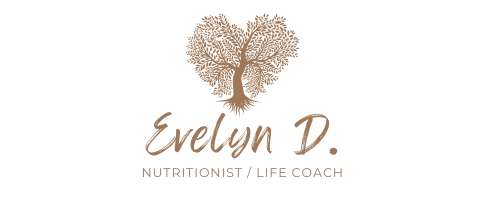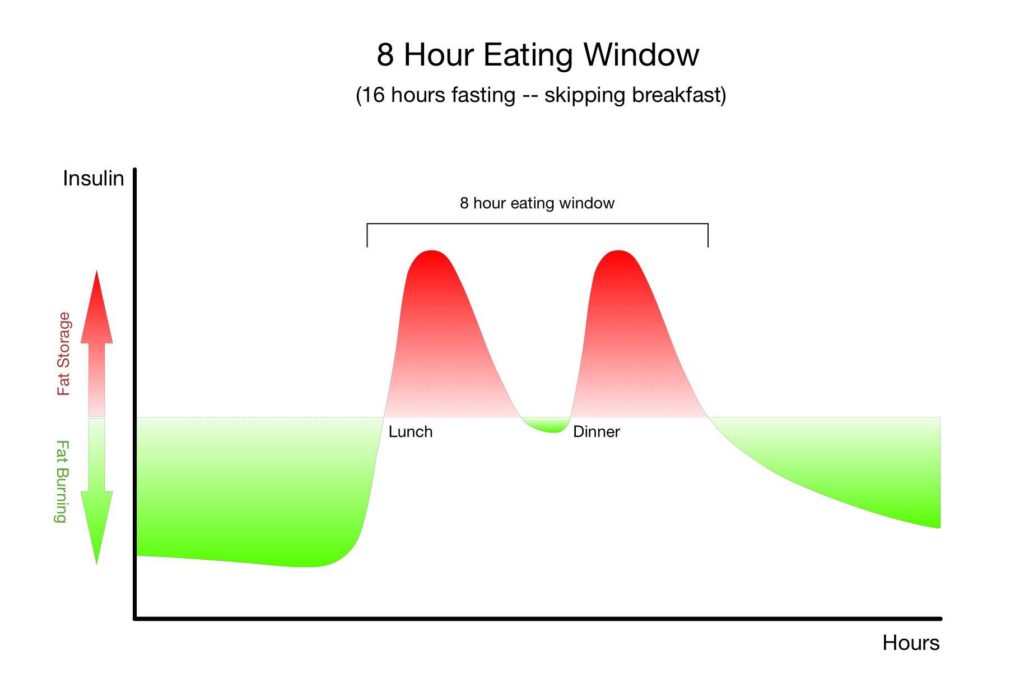(Shout out to Dr. Kaley Burns and Dr. Lauren Young at CNHP/CNHS for inspiring me to give Intermittent Fasting another chance.)
For the past week or so, I’ve been experimenting with Intermittent Fasting (IF) which is when you fast for an extended period and then ‘feast’ – rinse, repeat, etc, etc.
You can approach IF in several ways. In fact, most of us fast everyday by default simply by not eating while sleeping, but this fasting window is not long enough to get the metabolic and hormonal benefits of longer fasts.
I’d heard of IF years ago, but I was always taught from very prominent functional medicine doctors and educators that it was not suitable for Hashimoto’s, adrenally compromised or hormonally imbalanced people – women especially. Since I meet all of the above criteria, I dismissed it as an option for me….until Dr. Burns informed me otherwise.
OK then!
I put on my research hat and scoured the books, pubmed, podcasts and blogs to get the real scoop.
MYTH #1 BUSTED – For the most part, research does not support that Intermittent Fasting is ineffective or harmful for hormonally challenged people like me. One of the predominant experts in the field of fasting is Dr. Jason Fung – author of The Obesity Code and The Complete Guide to Fasting (which I bought :)). In his Canadian clinic, he works with thousands of patients with severe metabolic issues, obesity, kidney disease, thyroid and adrenal disorders and has yet to report any issues with this patient population and fasting. In fact, their findings show that fasting helps relieve menopause symptoms in their patient population.
Fasting can increase cortisol – as does any stress (including exercise), but this can be a good thing. Obviously, severe adrenal issues should be approached only with doctor supervision, but my imbalances are mild enough to get the green light. (NOTE: Always check with your health practitioner and listen to your own body when embarking on any eating or exercise changes. )
MYTH #2 – Won’t skipping breakfast and Intermittent fasting slow down my metabolism?
NOPE. Quite the opposite. Research shows that increases in BMR (Basal Metabolic Rate) and Growth Hormone production, as well as insulin sensitivity occur with fasting. This is why it can be a great solution for Type II Diabetics. In the chart below, we see that with a 16:8 IF schedule, fat storage from excess insulin decreases and fat burning increases. How cool is that!
A word of caution when eating in the 8 hour window: Don’t be tempted to under-eat here. The body will adapt to the lower calorie levels over time…that’s when metabolism can slow down to meet the energy demands/deficits placed upon it. It’s important to keep nutrient density high with non-starchy veggies and high quality protein and fats. Eat to satiety. If you’re truly not that hungry one day, it’s fine to keep calories low, just don’t stay there too long. The ‘Keep Your Metabolism Guessing’ principle still applies with fasting.
MYTH #3 – Won’t I lose muscle, strength or endurance with fasting?
Not likely. With fasting, the body spares lean tissue and prefers to use fat stores for fuel. This isn’t usually the case with dieting (aka: caloric restriction) unless you consume enormous quantities of protein or supplemental amino acids. I’ve been fasting with my Crossfit workouts just fine.
I’m not really going into all the science here, but I did post a great article from Authority Nutrition over on the Nourished Path Facebook page if you want to know more of those details and also learn more about who should NOT practice fasting. (It’s a short list, but worth noting before jumping in.)
In case you’re interested, here’s what I decided to do and what I’ve experienced so far with my IF experiment:
I decided to jump right into a 16:8 fasting schedule everyday. For me, I found that fasting during the week is super easy, because I usually stop eating at around 7 pm which means I eat my first meal at 11 am the next day. It got a little more uncomfortable this past weekend, because I had a couple of glasses of wine until about 10pm, which meant I had to wait until 2pm to eat the next day. That was difficult – not gonna lie, but I distracted myself with doing stuff around the house. (NOTE: alcohol doesn’t help with fat metabolism or cravings at all. Keep it moderate and just 1-2 days per week tops.)
During my 8 hour “eating window”, I mostly eat meat, fish, eggs, veggies, sometimes a piece of fruit, maybe a little goat cheese here and there, healthy fats, nuts and seeds and a very very minimal amount of snackie things like chips, Gfree crackers, dk chocolate, HaloTop ice cream :)). I’d say I’m still pretty low carb for the most part which also helps me be more ‘fat adapted’ and helps keep blood sugar balanced – all important for health and to minimize cravings.
During my “fasting window”, I drink coffee or tea with a splash of unsweetened coconut creamer and cinnamon. I also drink lots of water, seltzer, electrolyte water and I have bone broth ready to sip if need be (hasn’t been needed yet).
BTW: It felt AMAZING not to think about macros and calories (which I’ve been doing for the past 10 weeks with my accountability partner). So freeing! Woohoo!
BUT ALSO NOTE: This eating window is not a free for all – calories still matter – but you should also not restrict calories either as I state above. Digestion and assimilation of nutrients and your metabolism overall should be WAY more revved up than with the typical ‘3 meals, 2 snacks, eat every 3 hours’ approach that is our culture’s common eating practice. I guess what I’m saying is you may be able to get away with eating things you normally would avoid when trying to ‘lose body fat’ – this is also very freeing and awesome!)
How I felt: I did experience the sensation of hunger as my daily fasts reached the last few hours. According to fasting experts, our body usually adapts (the hunger hormone, Ghrelin starts to diminish) and dulls these urges after about two weeks, so I’m looking forward to that.
I basically stay hydrated and busy and just allow the hunger sensation to be experienced and fade – which it did every day. I feel this practice is not only a great mindfulness exercise, but it also strengthens new behavioral patterns.
We are wired and conditioned to eat, but we can retrain our habits and use our physiology to our advantage.
In this day and age, for most of us (thank God), hunger pangs do not equate to death – most of these urges are habitual or emotional – out of stress or boredom. We can push through. Plus knowing that ‘pushing through’ will not negatively effect my metabolism is a new paradigm for me.
More benefits: I definitely felt more energetic and ‘up’. Like I said, my workouts were not effected. I did notice that if I took some of my supplements when fasting, I felt nauseous, so I just have to be sure to take them at 11 or during my eating window. I also felt less bloaty after eating. This was a common symptom some evenings with certain foods – no more! Fasting helps give your pancreas and digestive system a nice rest. Allowing ourselves to get hungrier gets all the digestive juices flowing much more potently than non-stop eating all day does.
Another plus: I think my grocery bill will go down. Intermittent Fasting usually leads to fewer calories, but also, the variety of foods I would typically have to pack for emergency snacks and breakfast or lunch are not as critical. I may have breakfast foods for lunch some days, or leftovers or a big salad with meat or tuna on it. It’s just scaled back and so it seems like I don’t need as much to get me through the day.
Since it’s only been a week and a half, I can’t put too much into scale changes, but I did lose 3 pounds. (I’m usually not a scale person, but I’m using it as data points for my experiment.) Also, I’ve been told my face looks thinner – less puffy – which I’ve noticed in some recent pictures. I guess that’s a good thing too!? 🙂
So that’s the scoop on IF so far. Do you have any myths you’d like me to bust? Have you tried fasting? Share your experience here. If you haven’t tried it, will you? Let me know what you think. I’ll be posting updates in the future and would love to get your feedback and updates too. Feel free to post on the Nourished Path Private Facebook page where it’s a small group where we can share any questions, thoughts or comments related to health, nutrition, mindfulness, etc..
Talk soon!
xo,
Ev




